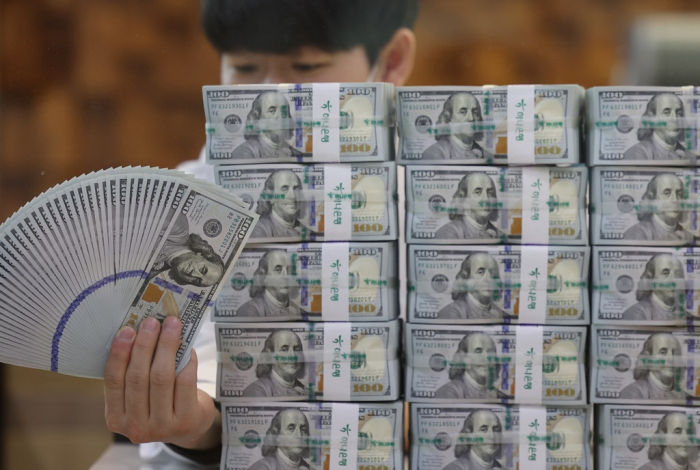South Korea’s won currency skidded to a fresh low in nearly two years as oil prices spiked to a 14-year peak with fears of a prolonged war between Russia and Ukraine, boosting concerns over its impact on the trade balance of Asia’s fourth-largest economy.
The won fell 1.1% Monday to finish the local foreign exchange market at 1,227.1 against the dollar, the weakest close since May 29, 2020. The South Korean unit declined 1.8% in the latest two sessions, more than a half of its loss of 3.1% so far this year.
The finance ministry issued a warning against the currency’s decline but failed to do much to support the local currency.
“We are monitoring whether there is any speculative movement in the offshore market or excessive anxiety among local market participants due to recent changes in external conditions,” it said. “We will strengthen communication with major FX players in the local market.”
OIL SPIKES TO HIGHEST POINT SINCE 2008The won, which has been a victim of risk aversion among investors, came under further pressure as crude prices jumped to the highest level since July 2008 with the global benchmark Brent at $139.13 a barrel. The United States and European allies mulling a Russian oil import ban and delays in the potential return of Iranian crude to global markets fueled tight supply fears, Reuters reported.
Higher oil prices are expected to hurt South Korea’s trade balance since the country is the world’s fifth-largest oil buyer. The country swung to a trade surplus in February from deficits in the previous two consecutive months.
In overseas financial markets, the euro tumbled on worries that the euro zone’s economy will be hit harder, given its heavy reliance on Russia’s raw materials. The euro tumbled to a 22-month low on the dollar.
The dollar index, a measure of the value of the US unit against a basket of major currencies such as the euro, the Japanese yen and the British pound, rose to 99.22, the highest since May 2020.
“Russia’s invasion of Ukraine ramped up prices of crude oil, grains and raw materials, stoking fears of a blow to the European economy and the euro,” said An Young-jin, an economist at SK Securities. “The won could weaken to 1,250 versus the dollar, given its strength against the euro and risk aversion.”
Write to Ik-Hwan Kim at
lovepen@hankyung.comJongwoo Cheon edited this article.



